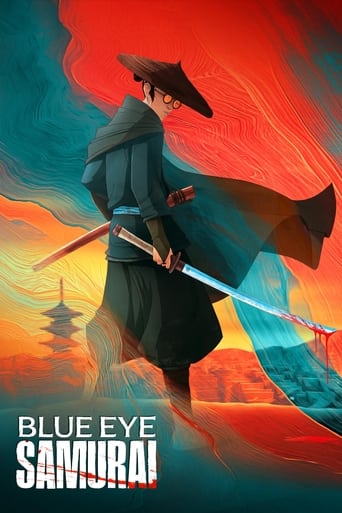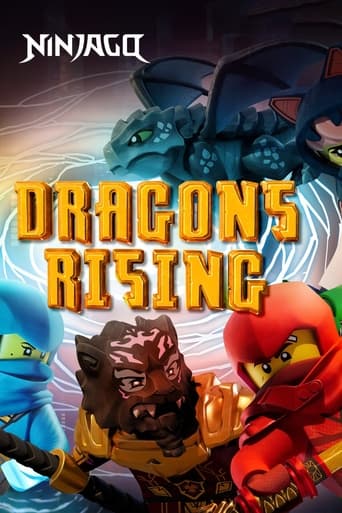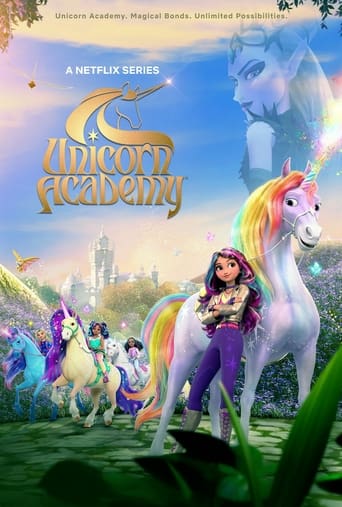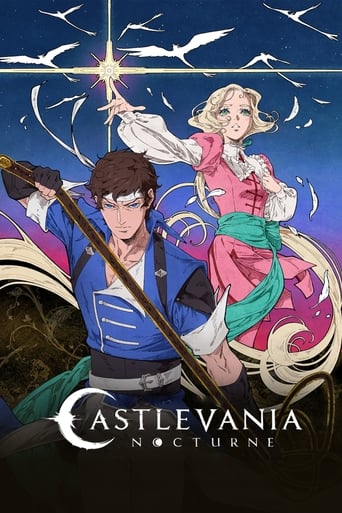Best movies & TV Shows like Happy Ever After
A unique, carefully handpicked, selection of the best movies like Happy Ever After Starring Bobby Au-Yeung, Kwong Wa, Roger Kwok, Marianne Chan, and more. If you liked Happy Ever After then you may also like: The Warlords, Kung Fu Chefs, The Emperor's Shadow, The Flying Guillotine, Flying Guillotine II and many more popular movies featured on this list. You can further filter the list even more or get a random selection from the list of similar movies, to make your selection even easier.
Happy Ever After is a 1999 Hong Kong grand-production television period drama. A TVB production, the drama was produced by Chong Wai-kin, written by Chan Ching-yee and Choi Ting-ting, and stars an ensemble cast. The drama is set during the reign of the Qianlong Emperor of Late Imperial China's Qing dynasty. The drama tells of a story regarding the struggles of a poor chef and his best friend earning an opportunity to serve the Qianlong Emperor, also befriending the emperor along the way. The drama also places an emphasis on Chinese cuisine with documentations concerning the Manchu Han Imperial Feast. Happy Ever After acclaimed positive reviews from critics and was TVB's third highest-rating drama of 1999, peaking to 40 points. Happy Ever After was re-broadcast on the same channel in 2007 between January and March.
You may filter the list of movies on this page for a more refined, personalized selection of movies.
Still not sure what to watch click the recommend buttun below to get a movie recommendation selected from all the movies on this list
Kung Fu Chefs
Ousted chef Wong Bing-Yi is determined to help Shen Qing at her restaurant "Four Seas". He trains a young chef, Lung Kin-Yat to compete against Chef Tin, the head chef at "Imperial Palace", for the title of "Top Chef".
The Emperor's Shadow
Epic drama about China's first emperor (221 BC) who struggles to make his childhood best friend, now China's greatest composer, succumb to his will and compose a grand anthem to his exploits.
The Flying Guillotine
The Emperor's armies have developed a new weapon: a thrown blade that can remove someone's head from long distance. As the paranoid Emperor begins decapitating anyone he fears might be a threat, his guard Mau Tang becomes disillusioned with the excesses of his master. He leaves his post and takes up the quiet life of farming and raising a family. Eventually, though, his past catches up with him, and he must find a way to fight the flying guillotine if he is to save his head.
Flying Guillotine II
The emperor's reign of terror expands. Heroic outlaw Ma Teng joins a squad of female rebels, whose leader is torn between family loyalties.
The Blazing Temple
Young men, angered by the repressive and corrupt Ching government, come to the Shaolin Temple to study. Fearing that the Shaolin Temple is a harbor for rebels wanting to overthrow the government, the Ching Emperor Yungzheng kills the monks wherever he can find them. After the Emperor orders the destruction of the Shaolin Temple, his name becomes the most feared and hated in China. After years of struggling, the surviving Shaolin disciples, led by Carter Wong, move to assassinate the Emperor. This epic tale of Manchu China has all the scope and action you'd expect from Hong Kong master Joseph Kuo.
Secret Service of the Imperial Court
Secret Service of the Imperial Court was one of the last kung fu/swordplay films to be made at Hong Kong's Shaw Bros. studio. Set in the Ming Dynasty, it makes excellent use of the studio's vast array of sprawling sets and colorful costumes to give a real period flavor. It has a good cast, lots of large-scale fight action and an exciting storyline about a conflict between an honorable officer and a corrupt Eunuch.
The Adventures of Emperor Chien Lung
Emperor Chien Lung uses disguises to experience life among his subjects.
The Kung Fu Emperor
Don't expect a long life if you are one of the emperor's fourteen sons! For instance, Ninth Prince meets an "accident" while hunting. The (unnamed) Manchu emperor is old and ill, and speculation about his successor is rife. But the powerful Lord Long, who is not a son of the emp, wants the throne as well. To stay alive, Fourth Prince keeps secret his kung fu lessons and plays the fool. Fourth Prince then leaves palace life to live among the poor. He befriends a ragged band on commoners and, eventually, returns to the palace to prevent Lord Long's rise to the throne after the last prince is killed.
The Romance of Book and Sword
The story is based on the popular novel developed from folk legend. It goes that the Manchurian emperor Qianlong of China (circa 18th Century) was actually the son of a Han Chinese, the subject ethnicity. His brother of blood, Chen Jialuo just happened to be the chief of the Red Flower Society, an anti-Manchu secret society. Chen, a learned scholar, thought he could get his brother turn his back on the Manchu and restore the Han Chinese reign. But the story was ended by brutal clearence of the society members. It reflects one of the dark pages in Chinese culture, that ethics and humanity always become impotent when countered with power.
The Empress Dowager
Han Hsiang Li's lush epic re-creates the fascinating life and times of Tzu Hsi, the Manchu Qing dynasty empress who rose from the ranks of Emperor Xianfeng's many concubines to become the de facto ruler of China for nearly 50 years.
The Magnificent Concubine
Perhaps the most notorious concubine in Chinese history, Yang Guifei set a pudgy standard of beauty in her days of glory during the Tang dynasty. The Emperor Minghuang was so besotted with the woman that when An Lushan stages his rebellion against the empire, the ruler takes Yang Guifei along with his imperial entourage in an escape to the mountainous area of modern-day Sichuan, and sanctuary of sorts. But the concubine had roused the jealousy of the court and unfortunately for her and to the great sorrow of the king, her brother and others among the king's retainers demanded she be strangled to death while they were still in the mountains. This is the story told in this interesting Taiwanese adaptation by director Li Han-hsiang (Li Hanxiang).
The Chinese Feast
Former member of a triad, Sun seeks to emigrate to Canada. He decides to become a great chef of chinese cooking and follows the teaching master Au.
The Last Tempest
Despite Kuang Hsu's enthronement as the last reigning Emperor of China, his ability to rule effectively is overshadowed by the ever-present power of the Dowager Empress. When his attempts to reform the Imperial system are thwarted by the Dowager Empress, he attempts to curb her power. His efforts are not successful, and this failure leads directly to his own death and the end of Imperial rule in China. The Dowager Empress, though, ends her days comfortably and in peace.
The Last Woman of Shang
Admist a rebellion during the Ching Dynasty in ancient China, a nurse flees the palace with a young prince. As an adult, he convinces the daughter of the usurper to betray her father and to assist in restoring him as the rightful monarch.
Inside the Forbidden City
It seems that Li Zhenfei was once an imperial concubine, who often found herself competing with her rival Madame Liu for the emperor's sole, undivided attention. When Li gives birth to the Emperor's child, the jealous Liu switches the boy with a cat and commands a servant named Kou Zhu to kill the baby. However, Kou Zhu ignores the order and gives the prince-to-be to the emperor's brother, a decision which eventually leads to the boy being adopted by the emperor himself! But as fate would have it, to go along with his new son, the emperor has a new wife as well - Madame Liu! As this strange new family unit is being constructed, poor Li Zhenfei has been confined to the forbidden palace, condemned to never see or speak to her son, the prince. But destiny reunites her with her son, but will this family reunion be a happy one? And will Madame Liu finally be punished for her treachery?
A Step Into The Past
A Step into the Past is a 2001 Hong Kong television series produced by TVB and based on Huang Yi's novel of the same Chinese title. The series tells the story of a 21st-century Hong Kong VIPPU officer who travels back in time to the Warring States period of ancient China. He is involved in a number of important historical events that leads to the first unification of China under the Qin Dynasty. The series' first original broadcast ran from 15 October to 7 December 2001 on the TVB Jade network in Hong Kong.
Maidens' Vow
The history of the Phoenix Restaurant is closely intertwined with the stories of four women of different generations. It portrays the commonest marital problems and various kinds of stress suffered by women over the centuries.
The King of Yesterday and Tomorrow
The King of Yesterday and Tomorrow is a Hong Kong television drama serial that originally aired on Jade from 27 January to 21 February 2003. According to legend, Yongzheng Emperor of the Qing dynasty may not have died of natural death and was actually assassinated. The plot is an imaginative time-traveling story based on the continuation of what happens after the assassination attempt. The drama is produced by TVB under executive producer Siu Hin-fai. With an average of 2.21 million viewers, the drama is the fourth highest rating drama series of 2003. It received five nominations at the TVB Anniversary Awards, winning four. Maggie Cheung Ho-yee won the TVB Anniversary Award for Best Actress and one of twelve My Favourite Television Character awards, while Paul Chun won My Favourite Powerhouse Actor. Kwong Wa was nominated for the TVB Anniversary Award for Best Actor, and won one of twelve My Favourite Television Character awards.
Witness to a Prosecution
Witness to a Prosecution is a Hong Kong television series produced by TVB. The original broadcast was on the TVB Jade network with 45-minute episodes airing five days a week from 20 December 1999 to 16 January 2000. The drama stars Bobby Au-yeung as the famous historical forensic medical expert Song Ci. Set during the Southern Song Dynasty of Mid-Imperial China, Witness to a Prosecution tells a fictionalised account of Chee's modest beginnings and the events leading to the creation of his book Collected Cases of Injustice Rectified, the world's earliest documentation of forensic science.
The Comeback Clan
The Comeback Clan is a 2010 Hong Kong television drama starring Ha Yu, Christine Ng, Natalie Tong and Sammul Chan. Produced by Kwan Wing-chung and co-edited by Choi Suk-yin, Yuen Siu-na, and Lee Yee-wah, the drama is a TVB production. The first episode premiered on 20 September 2010.
War and Beauty
Fifteen years after Qing Emperor Jiaqing was crowned the country appears to be in harmony. However, fights between the imperial concubines escalate. All the imperial concubines including the emperor's beloved Yu-Yue understand this and becomes nervous when the triennial imperial concubine election approaches. Yu-Yue's position is threatened by an imperial descendant, Yuk-ying, a powerful eunuch's adopted daughter, Yi-Sun, and an experienced imperial servant maid On-Seen. They are friends and enemies in the war for the emperor's love. The four beautiful women are either friends or lovers of an imperial physician Sun Bak Yeung and a trooper Kong-Wu. Plots and lies undermine their love and friendships in the palace.
The Kung Fu Master
The story is based on the historic martial art legend Hung Hei-gun (Donnie Yen) in the Qing dynasty. In the final stand Hung Hei-gun and Fong Sai-yuk (Nick Cheung) fight their way to defend the Shaolin Monastery against the invading army of the Qianlong emperor who was trying to get rid of oppositions. Qianlong was also afraid to reveal that he was not a true manchu.
The Confidant
"The Confidant" depicts how a group of eunuchs survive in the weakening Qing empire, and closely traces imperial eunuch Li Lianying's early life from the first day he entered the imperial palace to become one of the most powerful political figures in the latter years of the Qing Dynasty. The drama also follows Li's relationship with Empress Dowager Cixi, and how he eventually becomes her closest confidant.
Silver Spoon, Sterling Shackles
The 1930s Hong Kong is the time of the East and West cultural shock. Women started fighting for their rights and status, changing the 'men superior to women' image. Famous barrister Sir Arthur Chung studied in England and lives a British lifestyle, but inside he's actually a traditional Chinese man. He married several wives to show off his power and upper-class status. First wife Koo Sam-lan was a rich girl; second wife is former Qing dynasty princess Aisin Gioro Yee-yin; third wife came from a family that owned banks Yvonne Yik; fourth wife is a famous Peking opera singer Hong Tsz-kwan; and the fifth wife Chui Dan-dan, a vanity admiring woman. Because Sir Arthur Chung is a strict and authoritarian father, his two sons Charles Chung and Jimmy Chung eventually start going against him. This wealthy and prominent family may seem warm on the surface, but in reality, they are scattered and disunited.
Twin of Brothers
"Twin of Brothers" is set in a period of dynastic change in Chinese history. Wacky wannabe swordsmen Chong and Ling accidentally acquire the mysterious "Longevity Martial Arts", which is rumoured to be the key to a huge treasure. The target of numerous people who covet the treasure, the two friends adventure through China despite the danger. In their journey, Ling meets two girls from two opposing sects, while Chong falls for the sister of the future emperor of China. With their extraordinary experiences, will the two become heroes amidst the historical turbulence?
Gilded Chopsticks
Ko Tin Bo had been an experienced eater since youth, he knows everything about food and the taste as soon as it goes into his mouth. Unfortunately due to a family crisis he and his loyal follower Lee Wai were forced to wander the streets and made a living off selling buns. Because of food, Tin Bo met a female street entertainer Gei Mo Suet, the Capital's most beautiful woman Lin Yeuk Bik and female chef Mai Siu Yue. It is also because of fate that he encountered the Fourth Royal Prince Yan Chan who discovered his talent and recommended him to the palace to work as a palace chef. In the palace, Tin Bo meets his old enemy Choi Hok Ting and set off a series of battles in the kitchen. Tin Bo also didn't know he was getting himself involved in the Eighth Royal Prince Yan Yik's evil plot.
The Flying Fox of Snowy Mountain
The Flying Fox of the Snowy Mountain 1999 is a Hong Kong television series adapted from Louis Cha's novels Fox Volant of the Snowy Mountain and The Young Flying Fox.
Deep in the Realm of Conscience
During the reign of Emperor Shang of Tang, Lee Longgei and his aunt Princess Taiping launch a coup that kills ambitious power-seeking Empress Wai, restoring Prince of Xiang, Li Dan to his throne. The palace appears to be returning to peace, but beneath the palace's tranquil facade lurks an undercurrent of tension. Some people act against their conscience for power, while others give up everything else for the sake of their loved ones. Deep in the palace, layers upon layers of secrets are exposed.
The Last Healer in Forbidden City
During the late reign of the Qing dynasty skilled physician To Chung is named the new Imperial Palace Physician when he successfully heals Empress Dowager Chee Hei from her illness. To Chung eventually grows close to the Gwong-seoi Emperor who is under house arrest at the Forbidden City and stripped of his powers after angering Dowager Chee Hei due to losing the First Sino-Japanese War and rebelling against her authority. To Chung also heals Gwong-seoi Emperor from his illness and helps the young emperor with his relationship with Consort Tsan. However how great he is as a physician to the imperial family, To Chung cannot heal his crippled wife Hung Bak-hap. Desperate to heal his wife he seeks out the services of bone-setter Fuk Ling. Fuk Ling's treatments help Bak-hap relieve some of her pain. Impress by Fuk Ling, To Chung refers her to the Forbidden City where she becomes Empress Dowager Chee-hei personal bone-setter. To Chung and Fuk Ling's friendship eventually turns romantic but his loyalty to his wife Bak-hap prevents him from further pursuing his romance interest in Fuk Ling. Fuk Ling, however, has ulterior motives for getting close to the imperial family as she has been tasked to kill the Gwong-seoi Emperor.
Divine Retribution
Divine Retribution is a TV drama series broadcast by ATV in Hong Kong on 11, September 2000. The series is supposed to be a sequel to TVB's 1992 series The Greed of Man, and was initially called, literally "Greed of Man 2000". Part of the reason for the name change was said to be due to legal rights disputes. While Douban reviews have suggested that the sequel to a TVB series being adopted by a rival channel ATV was actually not one of major controversy.
Dynasty
During the later years of the Kangxi Emperor's rule, his many sons were vying for the throne. The fourth prince, aided by Lusi, Nian Gengyao, and Han Chong, while the fourteenth prince had the support of martial arts master Zeng Jing. The competition between the two became intense. Lusi developed a romantic relationship with the fourth prince while Zeng Jing also had feelings for her, making their situation more complicated. Later, the fourth prince killed Kangxi and altered the imperial edict, successfully usurping the throne and naming himself Emperor Yongzheng. From then on, Yongzheng ruthlessly eliminated dissidents and even betrayed those who helped him, causing Lusi to regret her involvement. Ultimately, the fourteenth prince plotted to assassinate Yongzheng with the help of Zeng Jing and Lusi, igniting a fierce battle.
Heaven Sword and Dragon Sabre
The Heaven Sword and Dragon Saber is a Hong Kong television series adapted from Louis Cha's novel of the same title. The series was first broadcast on TVB Jade in Hong Kong in 1978.
The Giants
The Giants is a TVB television series, premiered on 15 May 1978. Theme song "The Giants" composition and arrangement by Joseph Koo, lyricist by Wong Jim, sung by Roman Tam.















































The Warlords
A heroic tale of three blood brothers and their struggle in the midst of war and political upheaval. It is based on "The Assassination of Ma," a Qing Dynasty (1644-1911) story about the killing of general Ma Xinyi.